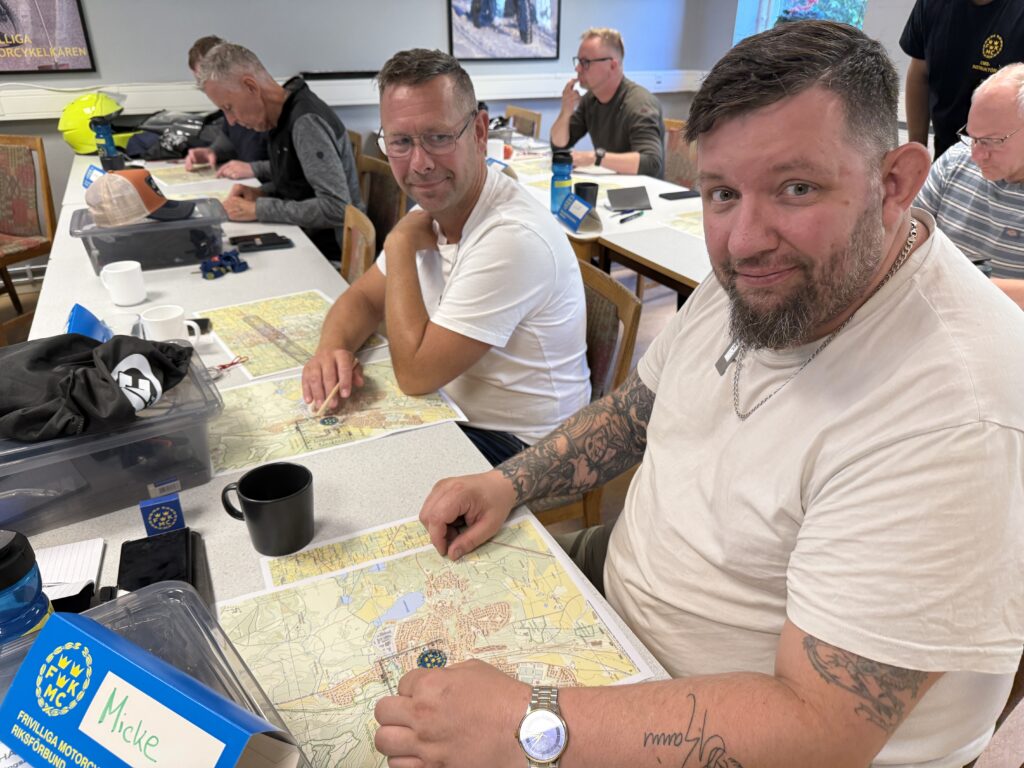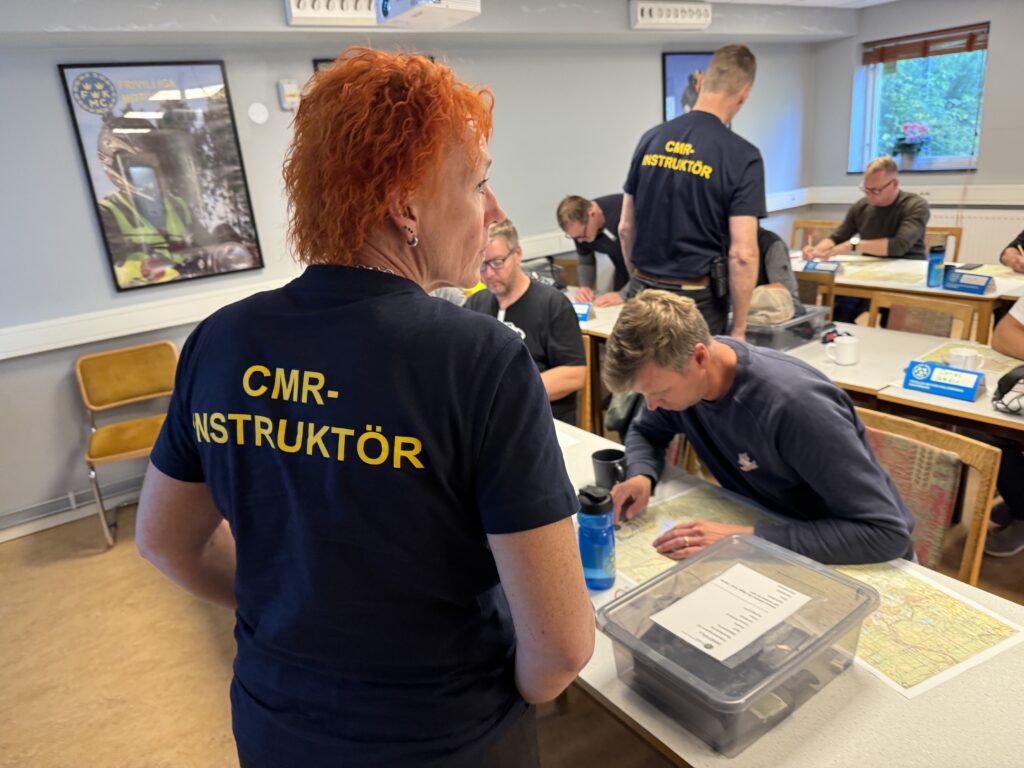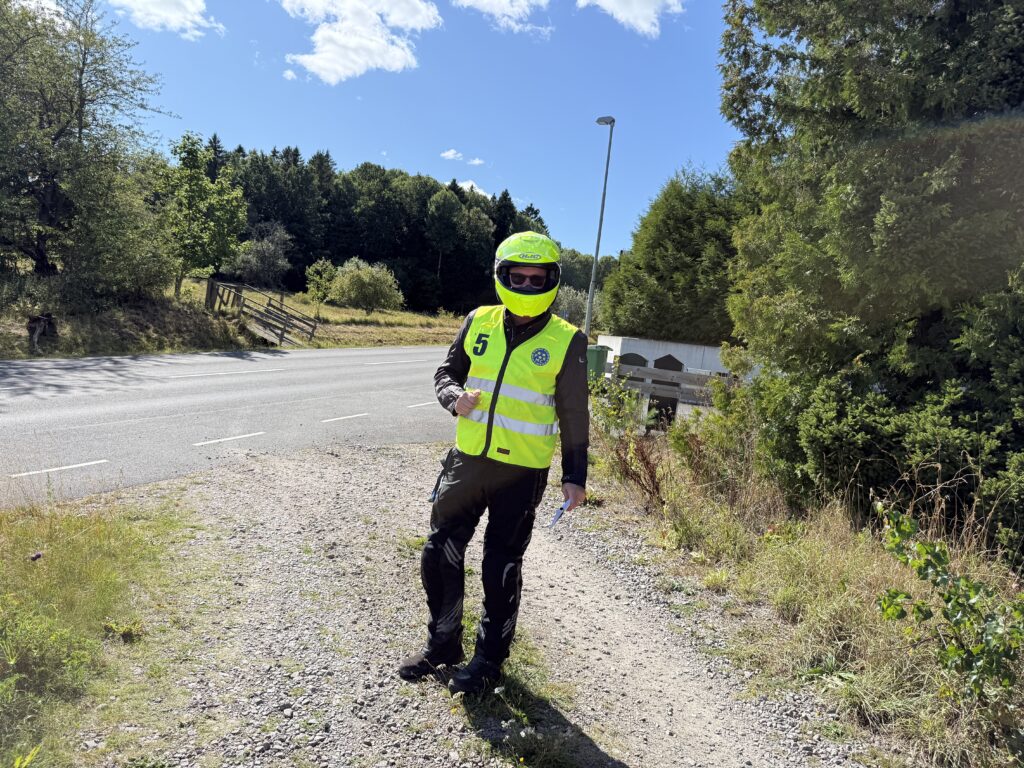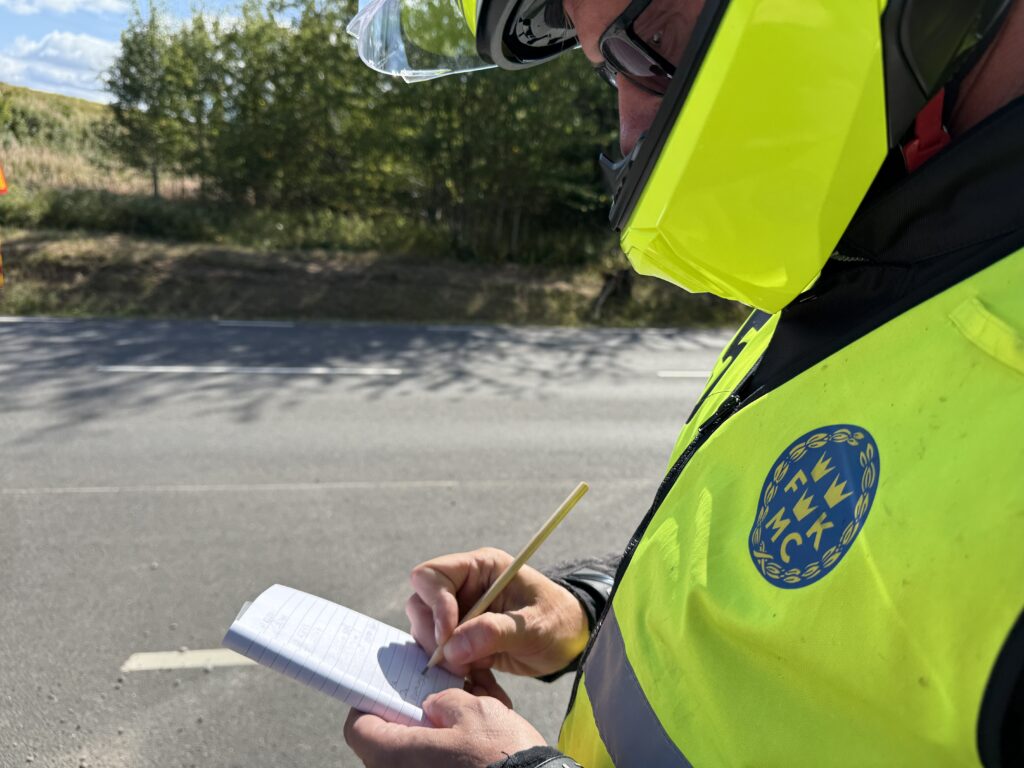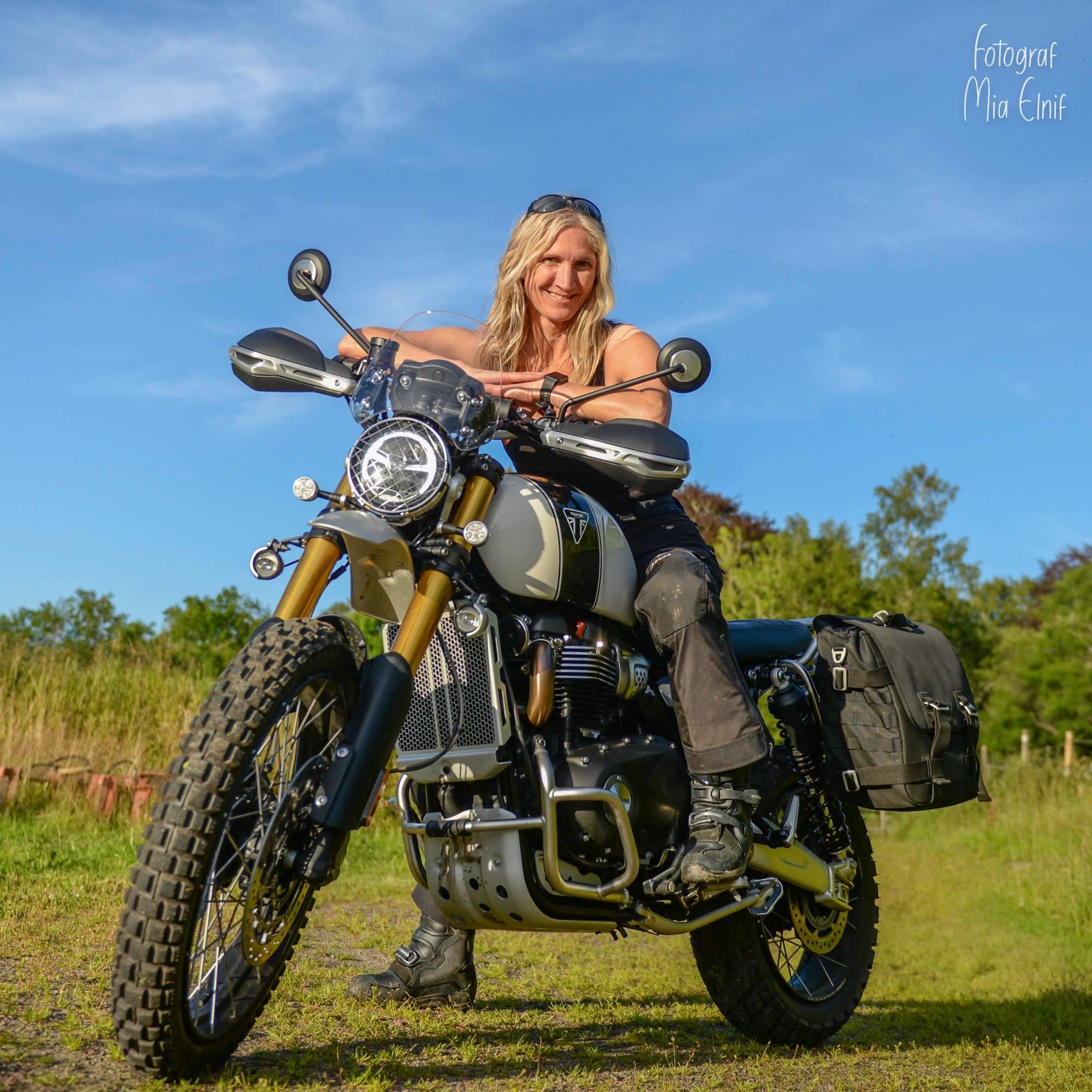Civil MC Resource – a part of Sweden’s preparedness
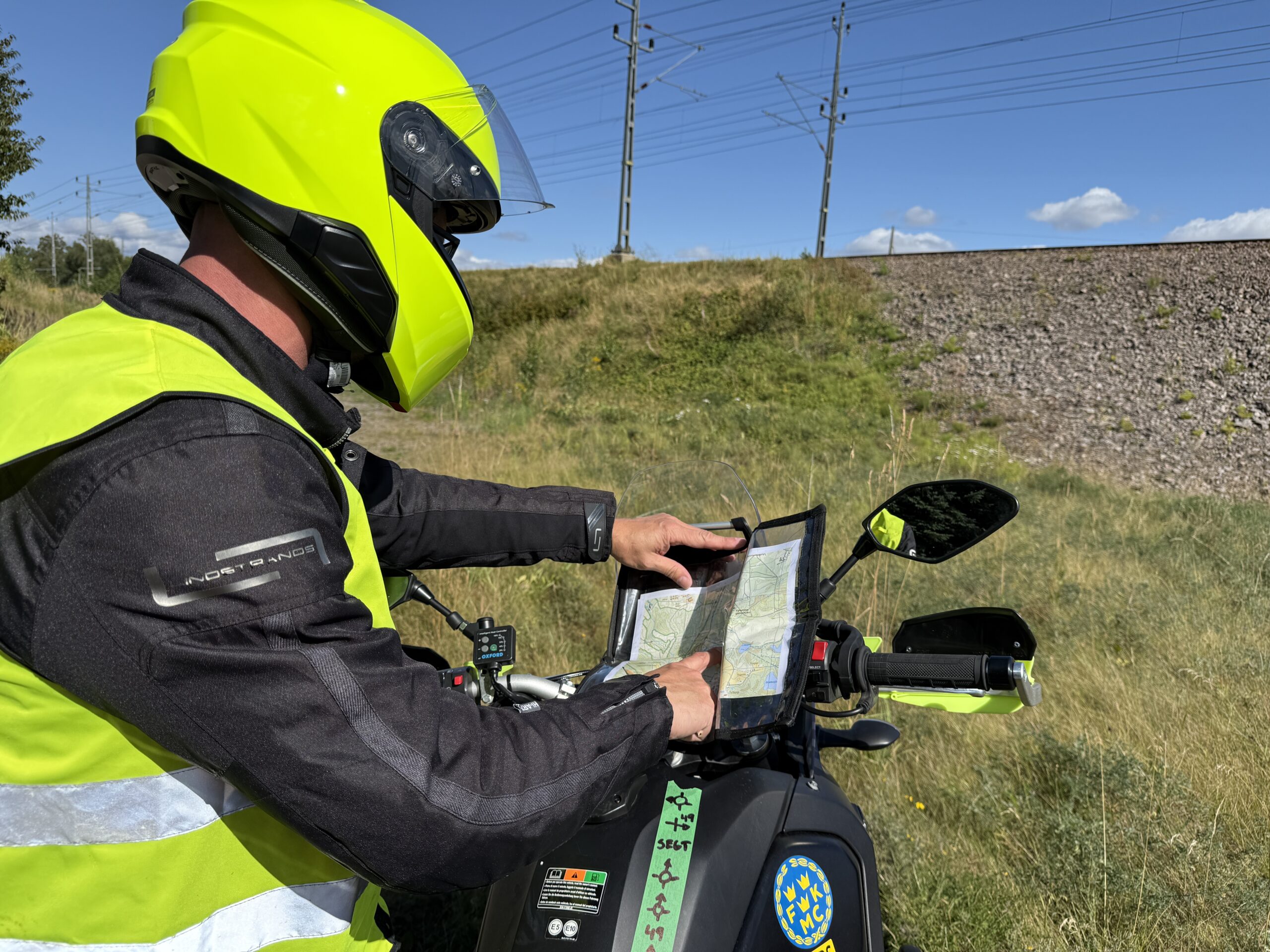
The most common tasks include transporting documents, materials or people, carrying out reconnaissance and reporting situational information, or assisting with traffic management. In practice, the motorcycle often becomes the last means of communication when other infrastructure fails.
From start-up to structure
In April 2022, I took part in the training myself. At that time, the programme was still in its start-up phase. The potential was evident, but much was still under development and the course format was still being shaped.
When I later visited the course in Skövde, the progress was clear. The training had become more structured, with more practical elements and a stronger connection to the needs of civil defence. Participants were not only practising riding and navigation, but also working together on issues linked to the tasks of authorities in real crisis situations. It is clear that the programme has taken major steps forward in a short time – from testing and adjusting to now being a course that seriously prepares participants for the role of civil resource in society’s preparedness.
During my visit the course was on its second day out of seven, with ten participants from different parts of the country – all with the goal of becoming Civil MC Resources. Map and compass were on the day’s agenda. Without any digital aids, the participants trained in navigation using paper maps. Their task was to plan a route to a given set of coordinates, ride there and carry out a simple reconnaissance. Once on site, they had to answer questions such as: What traffic regulations apply here? Would it be possible to park a lorry in this location? Observations were noted before returning to base.
After the training
When the training is completed, an agreement is signed and the participant is placed within civil defence in their county. The County Administrative Board can then activate CMR when society is under pressure. At present, however, only three counties and one municipality have formally integrated CMR as part of their preparedness system.
A voice from FMCK’s national board
Stefan Lundin is a member of FMCK’s national board, responsible for Civil Cooperation. He sees both potential and challenges with CMR:
“The biggest challenge is to get the relevant authorities, municipalities and county administrative boards to start using CMR. Within FMCK we are ready – we have trained and set things in motion. But no one really dares to take a decision. It seems as though many are waiting for someone else to act – perhaps a neighbouring municipality,” he says.
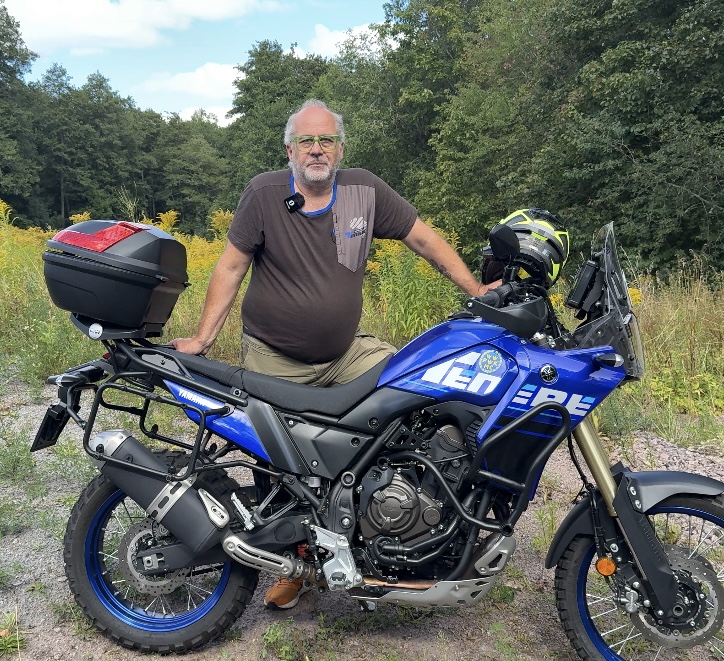
Stefan notes that many contingency officers still do not fully understand the benefit of a Civil MC Resource:
“MSB’s task is to ensure that civil defence becomes operational. But at present there is much left to be desired. There is no legislation, and today there is only a recommendation – which makes the whole matter somewhat vague.”
Despite these shortcomings, he is optimistic about the future:
“In five years, I hope that all county administrative boards will have their own exercises where CMR is included, and that we will have more courses in different parts of the country. Being a CMR is both useful to society and enjoyable – and you become part of something larger,” says Stefan Lundin.
The road ahead
CMR is an important part of Sweden’s preparedness. With the motorcycle as a tool, one can quickly and flexibly support society in times of crisis and disruption to vital functions. The training provides both practical skills and an understanding of the needs of total defence. But for the resources to have their full effect, authorities and county administrative boards must begin to use the capacity that already exists.
Facts: Civil MC Resource
Who can become a CMR?
- Swedish citizen
- Membership of FMCK and acceptance of its core values
- Category A driving licence; active motorcyclist
- Age: at least 18 and in good physical condition
- Not assigned to a wartime role (may be registered following agreement)
- Swedish, spoken and written
- A genuine interest in civil cooperation and a willingness to step up year-round, in all conditions and on all terrain
The training
- Basic training: seven days (Tue–Sun)
- Motorcycle riding on varied surfaces
- Motorcycle riding with a passenger
- Map reading and navigation
- Radio communication (Rakel)
- Basic first aid
- The role of Civil Defence within total defence

